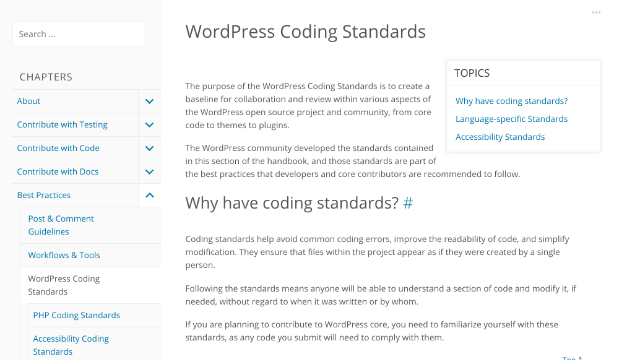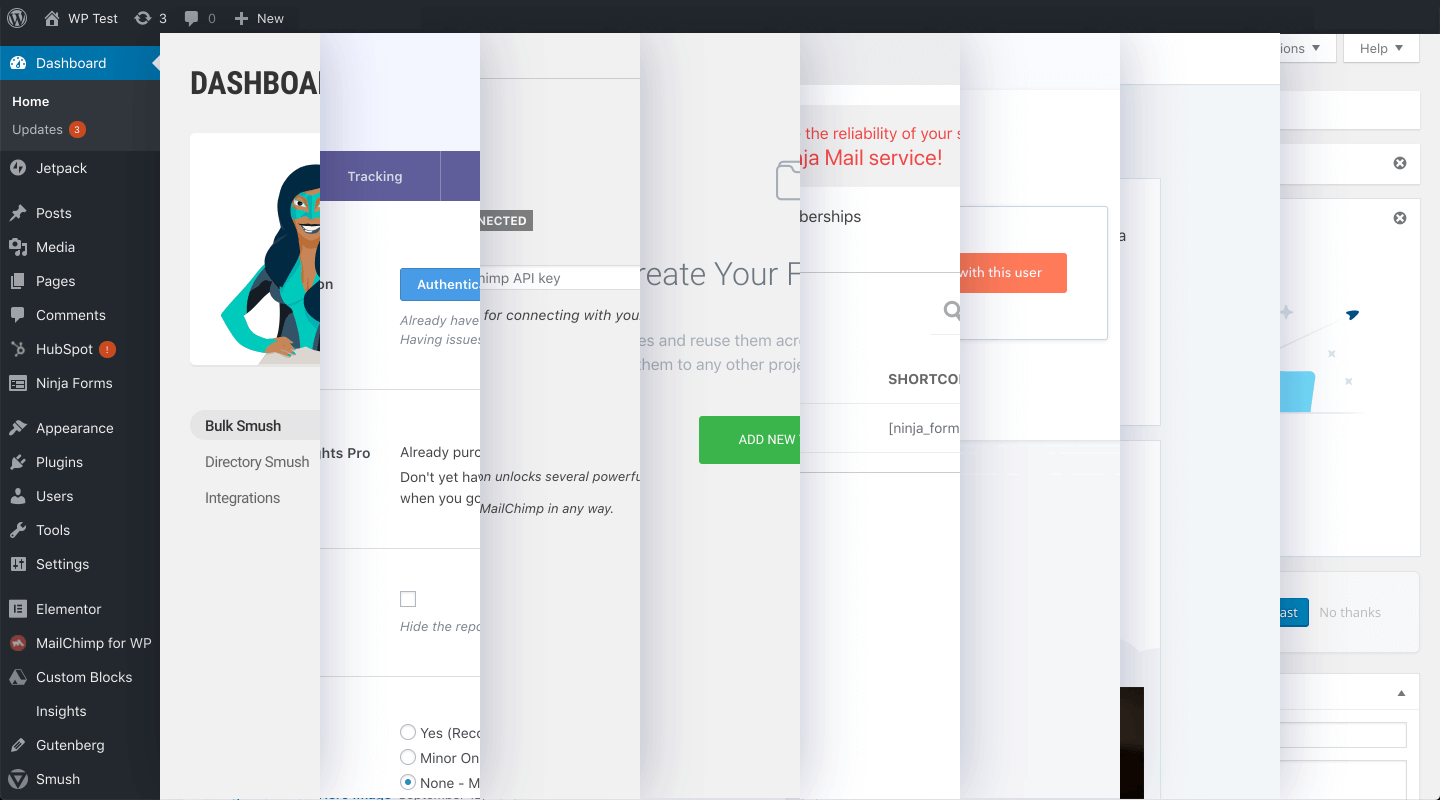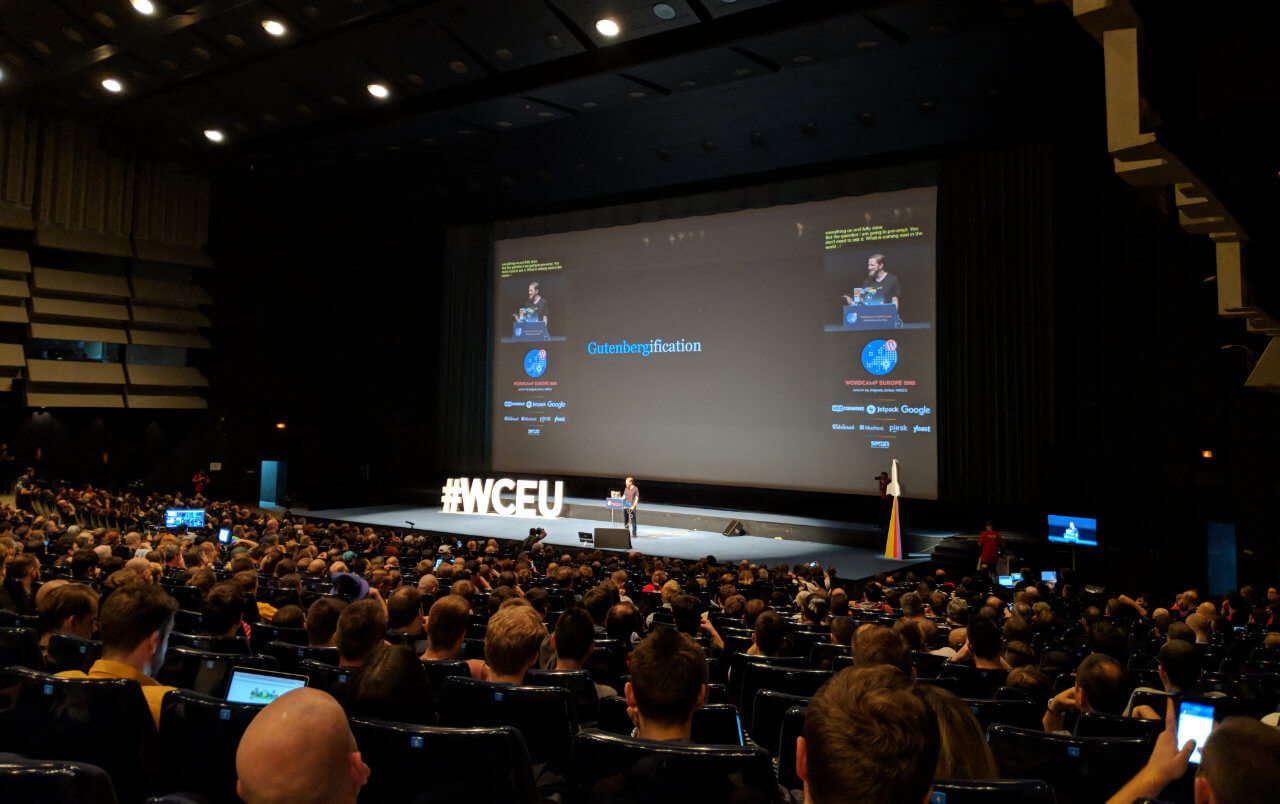WordPress is a powerhouse in website design and development. Almost 40% of all websites online today are built using WordPress. It also owns over 60% of the CMS market share, meaning that 63% of all websites built using CMS (as opposed to a hand-coded site) are built using WordPress. Plainly put: if you opened your browser today, there’s about a one in three chance that you visited a site built on WordPress.
This massive stake isn’t going unnoticed. Companies around the world, especially those focused in web technology, are investing in WordPress to help push their companies forward. Google released its Web Stories for WordPress plugin, and countless other Internet technology companies got in on the game.
But just throwing resources at a product isn’t necessarily going to move the needle. It takes time, investment, and a clear understanding of the unique ecosystem that is WordPress to achieve success. But before we get into the ‘How,’ let’s take a look at the ‘Why’ you should be investing in WordPress.
Your Customers Already Use It
Think WordPress has gotten to control 63% of market share just by chance? Think again. For over 18 years, millions of websites and developers have been using WordPress to create. 18 years of code. 18 years of iterations. And 18 years of climbing to the top.
Throughout that time, it has evolved far beyond its basic blogging roots. If you can dream it, it can be done on WordPress. From ecommerce sites with hundreds of products to single-page informational sites, WordPress has the tools to get things done. This flexibility has also given users the ability to integrate their WordPress site into already established systems.
Those systems are investments for your customers. Just like you, your customers don’t want to throw away all of the time and money that has gone into building established processes and workflows. Investing in WordPress means you’re investing in where your customers are, plain and simple.
Real-World Example
Automation apps are all the rage in marketing and development, and they’re a perfect example of a web technology that fits right into WordPress.
Your customer’s WordPress website is set up to handle content, eCommerce, user data, and more, and they’ll be looking for an automation solution that fits into their setup without disturbing existing flows. If your automation software requires a user to pull established content and workflow away from their website, or even just click back and forth between browser tabs, you’re going to lose out on a number of users.
Instead of creating this tedious back and forth, integrate your automation software into a tool that your customer already uses, WordPress.
WordPress Allows You to Focus on Your Product
Ever heard the old saying ‘less is more’? Sometimes doing less than your competition can put you in a better position to succeed. A narrower focus means faster implementation, better product, and more time focusing on what the user wants. That, of course, means achieving ROI that much faster.
When you use WordPress to develop your product, you open yourself up to a variety of ideas that allow you to buckle down and focus on what matters most. WordPress’s open-source nature opens up your business to a world of developers and users that all want the same thing you do: a better product. These users can submit pull requests into a variety of code management tools (usually Github), and help you sniff out bugs in code, or even add features to new versions.
Real-World Example
BigCommerce is a perfect example of this strategy. They realized their platform has specific strengths that WordPress users would value; therefore, they set out to create a plugin that brings their features and value proposition into the WordPress admin panel. Users can run their BigCommerce site on WordPress, leveraging all of its existing flexibility, while also taking advantage of the class-leading eCommerce functionality of BigCommerce.
“The worlds of content and commerce are now, more than ever before, inextricably linked. We know just how powerful WordPress is as a CMS, but we were seeing that existing commerce solutions didn’t match that scalability. Our goal was to build a plugin the WordPress Way that helped bring together the best of both platforms: the flexibility and extensibility of WordPress and the scalability and security of BigCommerce. Build and manage beautiful front-end experiences on WordPress and tap into the security and scalable commerce engine of BigCommerce in the background. Best of both worlds.”
– Travis Balinas, Director of Product Marketing, BigCommerce
WordPress Integration Could Make or Break Your Sale
Customers who are already on WordPress have one question on their mind when shopping for a new platform or software: “Will this work with WordPress?”
Like we stated earlier, site owners invest in their CMS, and want their tools to work with it. It goes beyond this, though. The quality of the integration (how well it integrates with WordPress), is an essential factor of the sale. They’re not just looking at if something integrates with WordPress, but how well it integrates.
Features are great, sure, but it doesn’t matter if Feature ‘A’ can make you a million dollars. If it doesn’t work, it’s costing you money in the long run. So what are your customers going to consider? Code quality, for one. UI and admin integration is another. Does it play nice with other plugins? How easily will my team be able to adopt this functionality? A cleaner, simpler integration reduces friction, which reduces the learning curve. This, in turn, reduces the amount of time their team is off the ‘floor.’
Because the Open Web matters
Open source has changed the way the Internet, no, the world has operated. We’ve all benefited from it. We’ve learned skills. We’ve launched careers. We’ve formed friendships, championed causes, and experienced infinite creativity. Many businesses, most centered around technology, wouldn’t exist without the open web.
WordPress is part of that creativity, built on the core freedoms of open-source software. It represents a multi-billion dollar economy spread over continents, industries, cultures, and languages. While this isn’t quite as concrete as some of the other points on this list, it goes without saying that open source (and therefore the largest open-source CMS, WordPress) should be a huge part of tech companies’ future. Investing in WordPress should really just be viewed as investing in the foundation that every tech company stands on. Give back. Feed the giant.
But How?
Just being part of WordPress isn’t enough. Having a plugin in the WordPress repository will only get you so far. What works in open source? What doesn’t? There are unique nuances that each individual player on the team needs to take into account. Standing out in the crowd of 55,000+ plugins in the repo takes planning, commitment, and execution. You can’t just invest in WordPress. You have to do it right.
Commit to WordPress Best Practices
Over its two-decade-long history, WordPress and the individuals who have worked on it have created an established set of best practices for users and developers alike. What do these best practices bring? Reliability, for one. In contrast to closed-source systems, the open-source nature of WordPress means there are a large amount of installable packages of code. WordPress best practices set a baseline that improves performance, stability, and accessibility. Working outside these guidelines increases security and functionality risks to both users and site owners.

Source: The WordPress Coding Standards
Provide a Native WordPress Experience
While WordPress itself has a set of coding standards, the branding and administrative standards that exist in other platforms haven’t quite made headway. This means there are a wide variety of interfaces from one plugin to another. While many work great in the WordPress admin, there are also some that conflict with the native WordPress experience.
Many people who work in WordPress and open source (including a number of people within XWP) are working to develop a common design language that can be used across interfaces and plugins, in the meantime, developers can and should be considerate of how their plugin works inside existing design patterns.

Variation examples of in-Admin UI from some of the most popular WordPress plugins.
By adopting familiar design patterns, you can:
- Reduce the design/development burden.
- Rely on established, user-tested, refined UI components.
- Encourage user adoption through a familiar interface.
- Reduce onboarding friction.
- Contribute to the larger WordPress and open-source UI narrative.
- And more.
Engage the Community
WordPress is a large, vibrant community of talented developers and users. Success in this ecosystem is largely dependent on your business’s perception of and within this community.
Support Forums
Every plugin in the WordPress repository has a support forum. Sometimes, companies make the mistake of ignoring this space, shifting focus to another platform. For general support, this makes sense, but WordPress users and open-source developers are most familiar with these forums and will review, submit, and assess activity within them as part of their initial plugin review.
Real-World Example
Google recognized the importance of engaging with user feedback on a plugin (the AMP Plugin) that at launch had quickly become a lot more successful than was expected. There was a lot of feedback coming in and not enough support to go around. The positive side of this was that it offered the perfect reference point for understanding the real needs and desires of the plugin’s users. The support forum heavily influenced the build out and prioritization of the v1.0 project backlog.
Addressing and responding to the needs of the support forum was also identified as a necessary step to demonstrating care and support for the plugins users and the larger ecosystem.
“We strive to make our open source projects successful and getting them into the hands of the largest possible number of users. Such success depends in good part on how we address the needs of our users, and how we steer the direction of our projects towards satisfying those needs as the project evolves. In WordPress, achieving this requires the proper handling of the support forums, and the right level of engagement with our users in them. In the context of the AMP plugin for WordPress, we assigned a high priority to this goal, and doing so paid off because it allowed us to, in turn, prioritize the resolution of issues and the execution of feature requests.”
– Alberto Medina, Developer Advocate at Google
WordCamps and Meetups
If you’re not familiar with WordPress, you’ve probably never heard of a WordCamp before. Fix that, ASAP. A quick look at the WordCamp site shows the thousands of camps that take place across the world where users and developers gather to learn, share, debate, and contribute to WordPress as a whole.

WordPress meetups are similar, albeit on a smaller, more intimate scale. These are two of the most visible examples of what sets the WordPress community apart from others. Try to find another two-day tech conference where tickets are below $50 (and sometimes free!) just for accessibility’s sake. If you want to succeed in the WordPress sphere, participating in these camps and meetups is a must. But don’t think your company will explode overnight. It takes time to refine and grow these loyal customers. Hard sells and SWAG alone won’t cut it. WordPress isn’t like other industries, and WordCamps and meetups are perfect examples of that.
A.B.G. (Always Be Giving)
WordPress has always been a huge proponent of open source. Anyone who’s been around the community for longer than a day will know that companies should (and usually do) always intend to give something back to the larger ecosystem. Trust us: users and community members will sniff out inauthenticity fast. Like a few other open-source platforms, WordPress is GPL (general public license). Our community believes the code that makes up WordPress should be shared, reused, examined, and repurposed. Why? So we can make it better, plain and simple.
Provide an Integrated Experience
As we mentioned in the ‘Why?’ section, WordPress users want to work in WordPress (duh). Switching back and forth between a variety of platforms and pages is never ideal. This will affect product adoption more than anything else. Rather than competing for a spot in someone’s application roster, become part of it. Integrate with WordPress wherever the value is greatest, and you will see an acceleration in adoption and use.
While integrating with WordPress is ideal, there are also ways to integrate with other plugins that are installed on your customer’s site. The potential of open-source software development is enormous! Integration with the WordPress core is good. Integration with other plugins is even better.
How can technology platforms integrate with plugins inside WordPress?
- Marketing Automation apps that integrate with popular WordPress Form building plugins
- SEO apps and services that integrate with popular SEO plugins
- CDN’s that integrate with AMP and media compression plugins
- Web hosts that integrate with backup and dev workflow plugins
- Plugins with tracking codes optimize for performance and reduce reliability on Javascript to become AMP compliant
Investing in WordPress and open source is a must for any technology company. Not just because it’s good for business, but because it’s good for the future of the Internet as a whole. But success doesn’t happen overnight. Understanding and working with the myriad of nuances within the WordPress ecosystem contributes towards the success that any business expects to find. Like anything worth having in life, you have to work for it. The end result will be a better Internet, a better future, and a better bottom line for your business.



